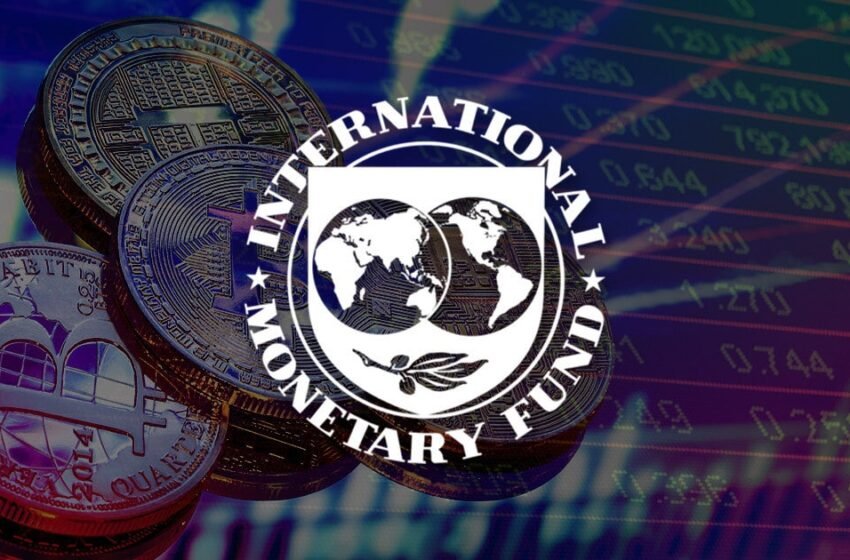US and Japan Regulators Discuss Crypto Oversight in High-Level Strategic
IMF and FSB Shine a Light on Effective Crypto Regulation in New Report
(Originally posted on : Crypto News – iGaming.org )
Worldwide regulatory bodies are cautioning against the adoption of blanket bans on cryptocurrencies. A newly released policy roadmap, a collective effort from the Financial Stability Board (FSB) and the International Monetary Fund (IMF), indicates that outright bans don’t effectively mitigate crypto risks. Compiled under India’s G20 leadership, this report consolidates the guidelines set for the crypto sector by multiple global standards agencies.
“Comprehensive regulatory and supervisory oversight of crypto-assets should be a baseline to address macroeconomic and financial stability risks,” the paper advises. It is set for presentation to the G20 soon and emerges in the wake of the several crypto business failures in 2022.
New players only. Exclusive 111% Welcome Bonus + 111 Free Spins
Potential Approaches to Cryptocurrency Regulation
To manage potential economic disruptions from the crypto world, the paper urges nations to bolster their monetary policies, keep a watch on capital flow fluctuations, and clarify their tax perspectives on cryptocurrency. The IMF and FSB are clear that banning all aspects of cryptocurrency is neither cost-effective nor technically feasible. Such a move could simply drive these activities to other jurisdictions, giving rise to further complications.
“Restrictions should not substitute for robust macroeconomic policies, credible institutional frameworks, and comprehensive regulation and oversight, which are the first line of defense against the macroeconomic and financial risks posed by crypto-assets,” the report highlights. But the paper doesn’t entirely dismiss the idea of restrictions. It suggests considering temporary and targeted measures, especially for nations still refining their internal frameworks.
Specific Cases: Privacy Coins and Banks
The IMF-FSB document cites examples of such specific measures in action, like Dubai’s clampdown on anonymity-based “privacy” coins, and Nigeria’s prohibition against banks catering to crypto entities. Particularly, emerging markets might find the need to adopt more tailored strategies to tackle unique risks.
New players only. Exclusive 111% Welcome Bonus + 111 Free Spins
Stablecoins: A Special Mention
The G20’s apprehensions about stablecoins, which tether their value against other assets or fiat currencies, are also addressed. The potential risk of these cryptocurrencies replacing traditional money or instigating bank runs in developing nations is underlined. “Rapid capital flight (or reversals) could materialize if foreign currency-denominated stablecoins became easier and cheaper to hold in large quantities relative to foreign currency bank accounts,” the document observes. Furthermore, the global embrace of stablecoins could escalate financial instability by transmitting volatility speedily.







 Bitcoin
Bitcoin  Ethereum
Ethereum  Tether
Tether  XRP
XRP  USDC
USDC  Solana
Solana  TRON
TRON  Figure Heloc
Figure Heloc  Lido Staked Ether
Lido Staked Ether  Dogecoin
Dogecoin  WhiteBIT Coin
WhiteBIT Coin  Cardano
Cardano  USDS
USDS  Bitcoin Cash
Bitcoin Cash  LEO Token
LEO Token  Wrapped stETH
Wrapped stETH  Hyperliquid
Hyperliquid  Canton
Canton  Wrapped Bitcoin
Wrapped Bitcoin  Monero
Monero  Binance Bridged USDT (BNB Smart Chain)
Binance Bridged USDT (BNB Smart Chain)  Chainlink
Chainlink  Ethena USDe
Ethena USDe  Stellar
Stellar  USD1
USD1  Wrapped eETH
Wrapped eETH  Rain
Rain  Hedera
Hedera  sUSDS
sUSDS  Litecoin
Litecoin  PayPal USD
PayPal USD  Dai
Dai  Coinbase Wrapped BTC
Coinbase Wrapped BTC  Avalanche
Avalanche  Zcash
Zcash  Sui
Sui  WETH
WETH  Shiba Inu
Shiba Inu  Toncoin
Toncoin  Cronos
Cronos  USDT0
USDT0  World Liberty Financial
World Liberty Financial  Tether Gold
Tether Gold  Polkadot
Polkadot  PAX Gold
PAX Gold  MemeCore
MemeCore  Uniswap
Uniswap  Mantle
Mantle  Ethena Staked USDe
Ethena Staked USDe  BlackRock USD Institutional Digital Liquidity Fund
BlackRock USD Institutional Digital Liquidity Fund  Circle USYC
Circle USYC  Global Dollar
Global Dollar  Falcon USD
Falcon USD  Bittensor
Bittensor  Aster
Aster  Aave
Aave  Pi Network
Pi Network  OKB
OKB  Sky
Sky  Pepe
Pepe  syrupUSDC
syrupUSDC  Bitget Token
Bitget Token  Ripple USD
Ripple USD  HTX DAO
HTX DAO  NEAR Protocol
NEAR Protocol  Internet Computer
Internet Computer  Ethereum Classic
Ethereum Classic  BFUSD
BFUSD  Ondo
Ondo  Superstate Short Duration U.S. Government Securities Fund (USTB)
Superstate Short Duration U.S. Government Securities Fund (USTB)  POL (ex-MATIC)
POL (ex-MATIC)  Gate
Gate  Worldcoin
Worldcoin  KuCoin
KuCoin  Pump.fun
Pump.fun  Jupiter Perpetuals Liquidity Provider Token
Jupiter Perpetuals Liquidity Provider Token  Midnight
Midnight  Cosmos Hub
Cosmos Hub  Ethena
Ethena  Jito Staked SOL
Jito Staked SOL  NEXO
NEXO  USDtb
USDtb  Spiko EU T-Bills Money Market Fund
Spiko EU T-Bills Money Market Fund  Binance-Peg WETH
Binance-Peg WETH  Rocket Pool ETH
Rocket Pool ETH  Official Trump
Official Trump  Algorand
Algorand  Binance Bridged USDC (BNB Smart Chain)
Binance Bridged USDC (BNB Smart Chain)  USDD
USDD  OUSG
OUSG  Wrapped BNB
Wrapped BNB  Filecoin
Filecoin  Function FBTC
Function FBTC